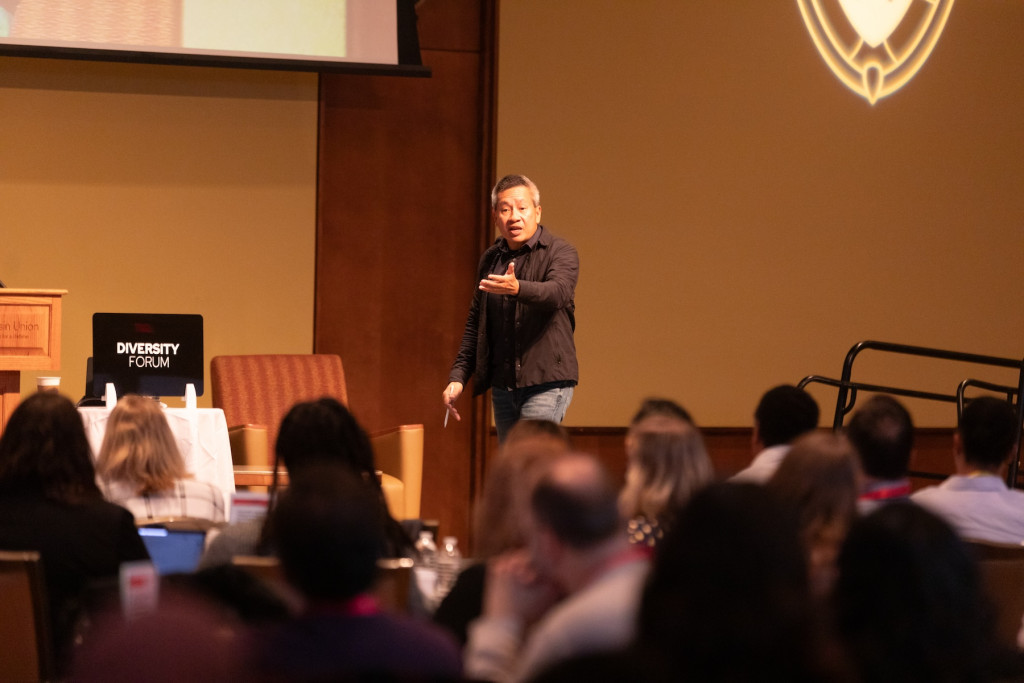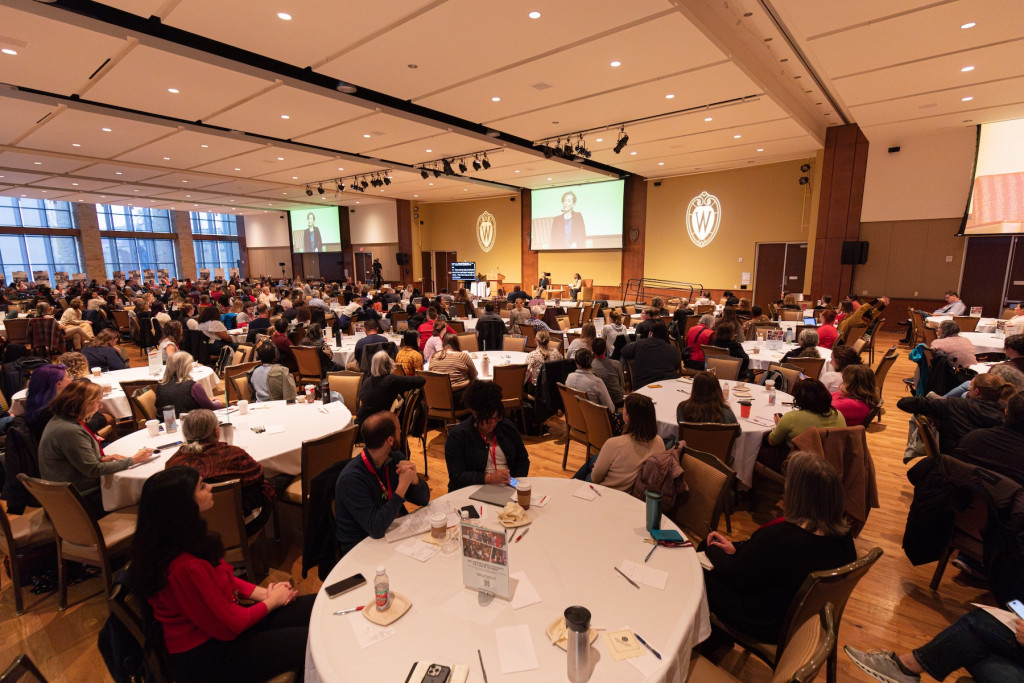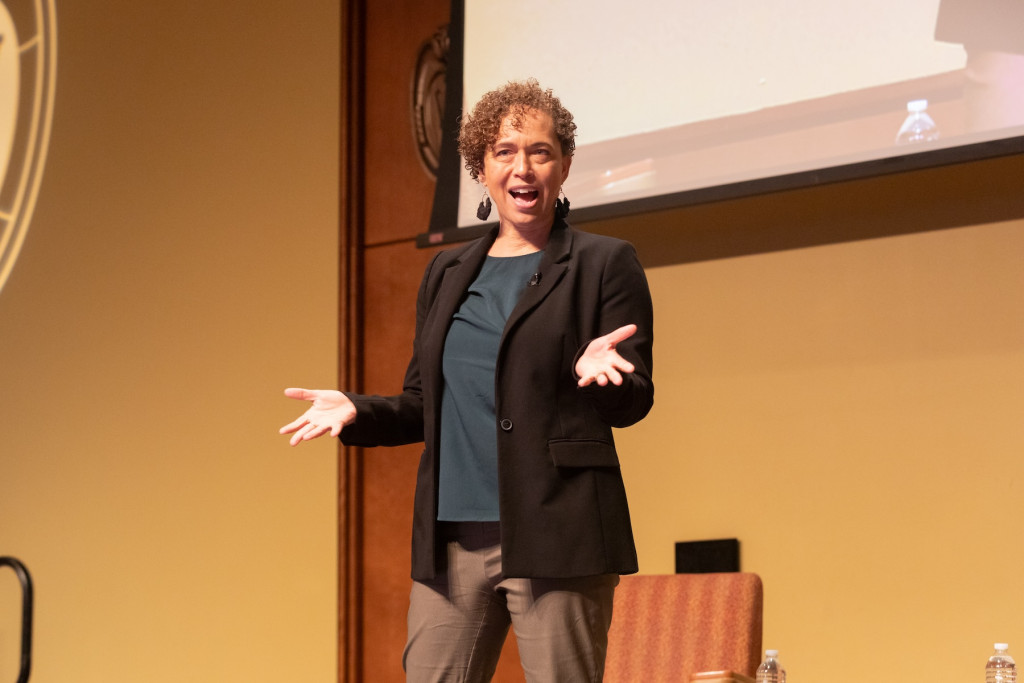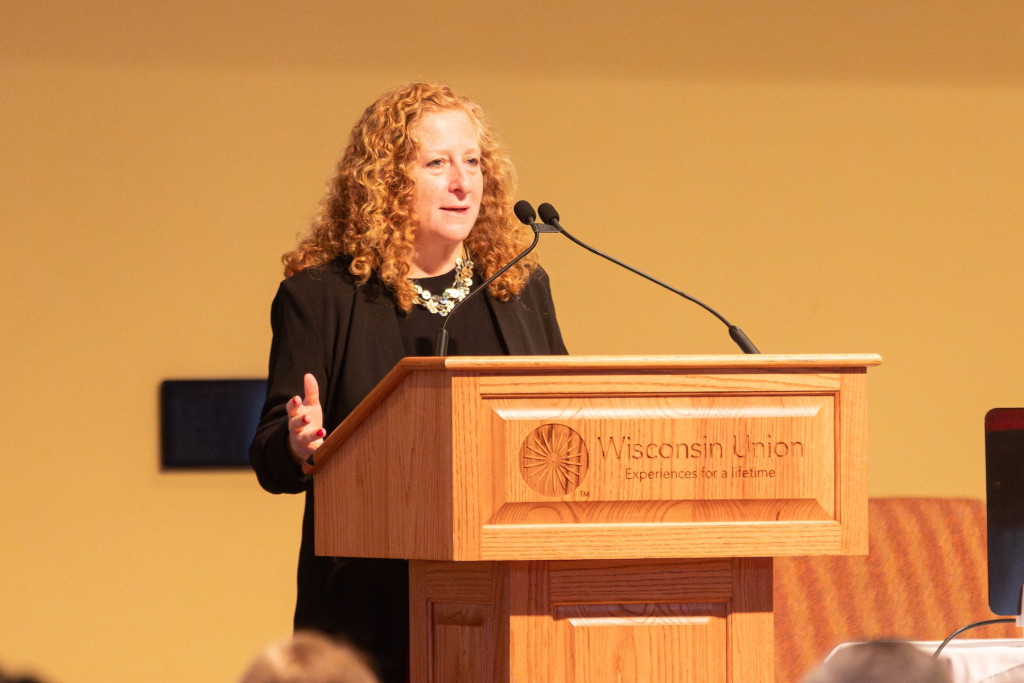Diversity Forum keynote speaker: Be intentional about avoiding bias
The human brain, when encountering another human, has a natural positive bias for insiders and negative bias for outsiders.
That’s why, to foster inclusion, people need to be more intentional and effortful to care for outsiders, fighting the brain’s tendency to rationalize these biases, said Steve L. Robbins, keynote speaker in the 2024 Diversity Forum Nov. 13-14. Robbins is an author, entrepreneur and expert in cognitive neuroscience.
“By practicing daily, we can then strengthen and enhance the neural pathways in our brains, leading to greater connectivity,” Robbins said in the speech titled “Your Brain is Good at Inclusion…Except When It’s Not.”
Robbins blended humor and insight into his science-based approach, leveraging neuroscience to explore how human behavior shapes inclusion and exclusion. Robbins even guided the audience through exercises that illuminate these unconscious processes.
More than 750 people attended the forum, titled “Threads of Belonging: Navigating Differences and Building Community.” Video streams of the event had more than 12,000 views.
Opening the event, Dr. LaVar J. Charleston, vice chancellor for inclusive excellence and director of the Division of Diversity, Equity & Educational Achievement, emphasized the importance of embracing differences to foster understanding and drive progress within the community.
“In this current climate, where divisions seem more pronounced than ever, we must engage across differences — whether political, cultural, geographical, religious, or racial — to facilitate important innovations,” he said.
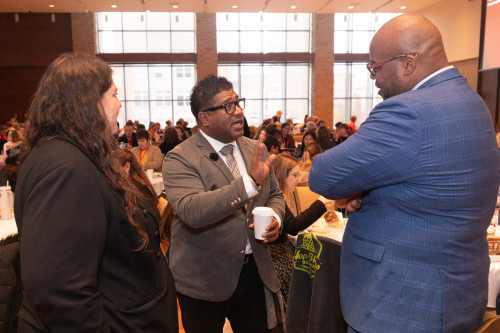
Damon A. Williams, who established DDEEA in 2009, won the inaugural Damon A. Williams Trailblazing Change Agent Award recognizing his leadership powering the work of community, access, and belonging. At right is LaVar J. Charleston, vice chancellor for inclusive excellence.
Chancellor Jennifer L. Mnookin reiterated the university’s commitment to inclusive excellence. “We can, and will, and absolutely must continue to be a place of opportunity and discovery, rooted in our diversity, our commitments to inclusive excellence, commitments to one another, and our commitments to innovating for the public good,” she said.
The keynote speaker on Day Two of the forum was Fanshen Cox, a playwright, performer and educator, who said storytelling can be a tool for systemic change and fostering a sense of belonging. Cox encouraged the audience to connect their personal stories with the collective experience, highlighting the power of listening and understanding each other’s narrative.
The forum also featured two plenary sessions and multiple breakout sessions on topics such as mental health needs of underrepresented students and leveraging design and digital accessibility to create inclusive experiences.
Next year’s UW–Madison Diversity Forum will take place Nov. 18-19, 2025. The DDEEA will announce a call for proposals in spring 2025, followed by registration for the event in fall 2025.

